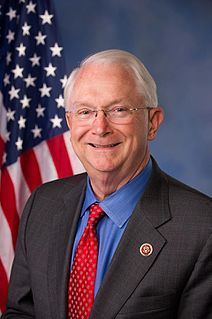A Quote by Michael Hudson
Everybody would be better off if they could buy housing for only, let's say, a carrying charge of one-quarter of their income. That used to be the case 50 years ago. Buyers had to save up and make a higher down payment, giving them more equity - perhaps 25 or 30 percent. But today, banks are creating enough credit to bid up housing prices again.
Related Quotes
The standard of 'affordable' housing is that which costs roughly 30 percent or less of a family's income. Because of rising housing costs and stagnant wages, slightly more than half of all poor renting families in the country spend more than 50 percent of their income on housing costs, and at least one in four spends more than 70 percent.
If we had created rules to automatically turn up the required down payment on a home when there's a housing bubble, or just say that the mortgage on a property cannot be larger than the value of the property three years ago, the amount of human misery that would've been avoided would've been enormous.
If you have to pay about forty to forty-three percent of your income for housing, you also have to pay fifteen percent of your paycheck for the FICA for Social Security wage withholding. You have to pay medical care, you have to pay the banks for your credit card debt, student loans. Then you only have about twenty-five or thirty-five percent, maybe one-third of your salary to buy goods and services. That's all.
While it's absolutely important that we build housing for our low-income residents, when we are talking about opening up hundreds of sites for housing, we should be trying to build affordable housing for all of our residents struggling to pay rent. That means housing for teachers, for nurses, for janitors.
Banks don't want certain asset classes, and that's created opportunities for private equity, hedge funds, Silicon Valley. In this case I think he was referring to some of the European banks shedding assets, and the big buyers are probably not going to be big American banks. Someone like Blackstone may have a very good chance to buy those assets, leverage them, borrow up a little bit, and do something good there.
Too-easy credit and millions of bad loans made during the U.S. housing bubble paved the way for the financial calamity and Great Recession that followed. Today, by contrast, credit is too tight. Mortgage loans are particularly hard to get, creating a problem for the housing market and the broader economy.
Hans Rosling typically would go into the room, and he would ask the audience questions. Often they had to answer them with clickers or raising their hands or something. We get [data] wrong because 50 years ago that wasn't the case and because we haven't had these graphics we don't realize that over the last 30, 40, 50 years things have changed dramatically. And you see how the world has been getting a better, safer, more homogeneous place. It just has.
































